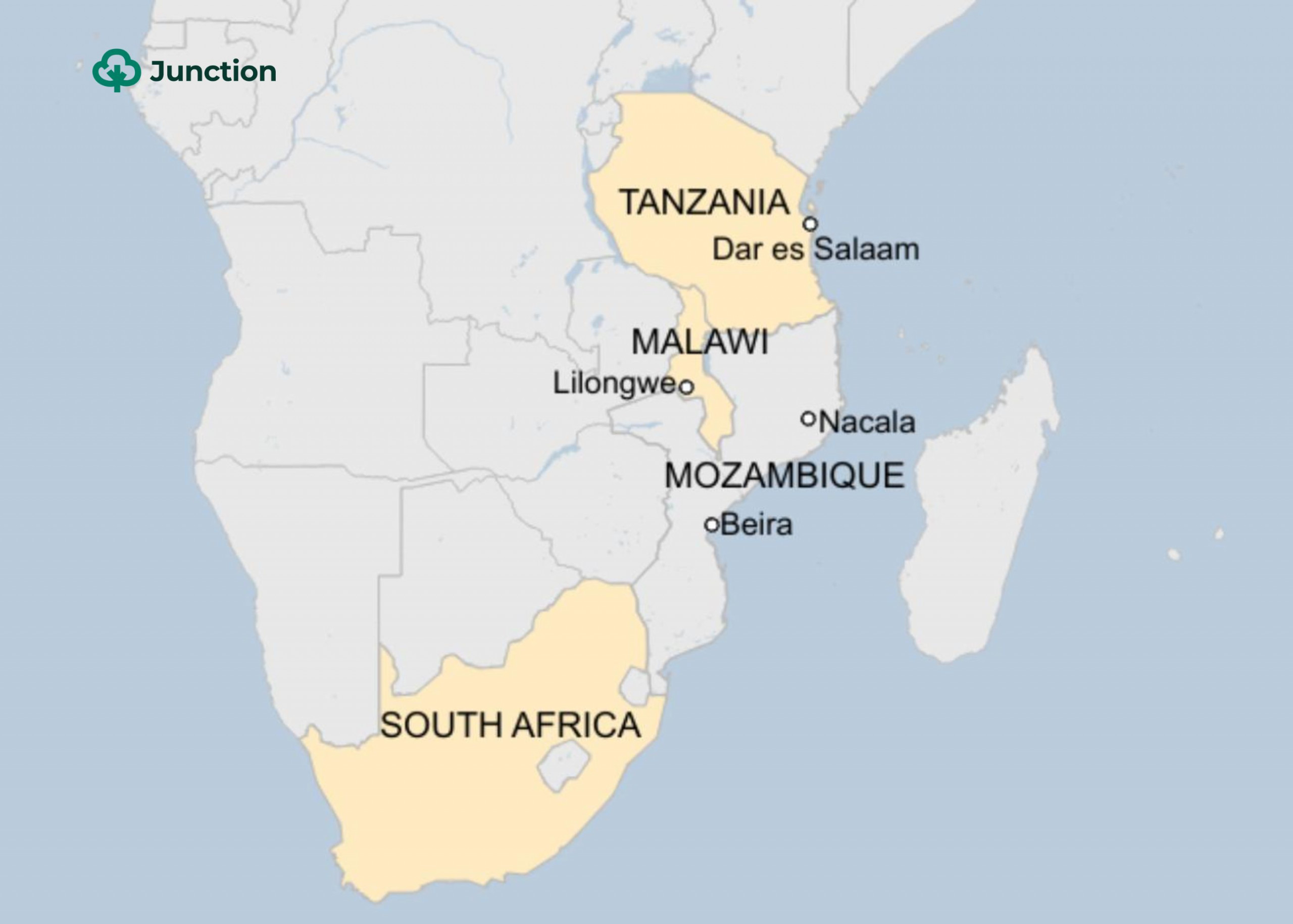News in Brief:
– Tanzania responds to South Africa and Malawi’s restrictions on Tanzanian farm products with an immediate ban on all agricultural imports from the two countries.
– This retaliatory action disrupts established agricultural trade flows and transit, potentially impacting the economies and agricultural sectors of all three nations.
The Tanzanian government, on Wednesday, announced an immediate prohibition on agricultural imports from South Africa and Malawi.
The directive includes a ban on fresh apples from South Africa, along with a comprehensive prohibition on all agricultural produce from both South Africa and Malawi entering Tanzania.
This decision, revealed by Tanzanian Agriculture Minister Hussein Bashe, comes in response to the two Southern African nations’ continued trade limitations on Tanzanian agricultural goods.
Bananas from Tanzania have been prohibited from entering South Africa for years, and Malawi, in March, blocked imports of flour, rice, ginger, bananas and maize, despite being members of the Southern Africa Development Community (SADC).
Unfair trade practices and reactions
According to the authorities in Lilongwe, the ban on Tanzanian agricultural produce by Malawi was a temporary measure covering goods from all countries to protect local producers.
“It is a strategic move to create an environment where local businesses can thrive without the immediate pressure of foreign competition,” Malawi’s Trade Minister, Vitumbiko Mumba, said at the time.
However, Tanzania’s agriculture minister described the move as ‘unfair and harmful’ as it had directly affected his country’s traders.
In a televised address, he underscored the prolonged trade imbalance and the absence of reciprocal trade treatment between the three countries as the primary drivers behind the ban.
“We cannot continue to tolerate this unfair treatment,” he asserted. He further assured that Tanzania’s food security will not be affected. “No Tanzanian will die for lack of grapes or South African apples. This is a matter of protecting our business. This is trade, and mutual respect is non-negotiable.”
Extended impact of the trade rift
These restrictions will have a significant impact on the region as they disrupt trade and negatively impact Tanzanian, Malawian and South African import and export of agricultural products.
The ban extends beyond direct imports to include agricultural cargo from Malawi and South Africa transiting through Tanzanian territory, particularly those originating from Malawi. Bashe announced that maize purchased within Tanzania for humanitarian purposes in Malawi would also be barred from leaving the country.
Adding to the trade tensions, the Minister declared a halt to fertiliser shipments destined for Malawi. Malawi was scheduled to begin collecting fertiliser from Tanzania for their planting season starting May 1, 2025. That will not happen now as no fertiliser will be allowed to cross into Malawi.
Intra-African trade threatened
The South African economy, which is export-reliant, will be further weakened by this market blockade. Its agricultural produce exports are already affected by the tariffs imposed by the United States of America, which is its biggest export market.
Malawi, a landlocked country, depends a lot on the port facilities of its neighbour, Tanzania, to engage in international trade. The countries may now struggle in the intra-regional reorientation, which many other economies are enjoying.
South Africa, with its relatively more developed agricultural sector, has often been a source of fruits like apples and grapes for Tanzania.
Conversely, Tanzania has been a supplier of certain commodities to both South Africa and Malawi, including bananas, rice, and maize.
Therefore, this import ban by Tanzania marks a significant escalation in trade relations. For South Africa, while Tanzania might not be a primary export market for all agricultural products, the ban on goods like apples could impact specific producers and trade volumes.
The repercussions for Malawi could be more substantial, given its reliance on Tanzania for fertiliser and its role as a market for Tanzanian maize.



